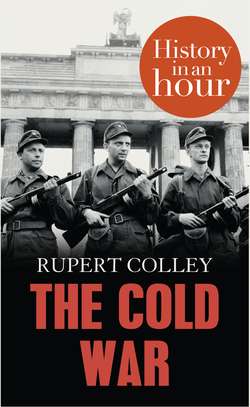Читать книгу The Cold War: History in an Hour - Rupert Colley - Страница 7
ОглавлениеThe Beginning of the Cold War: The Freeze
The Big Three talks, the last taking place in Potsdam, west of Berlin in July 1945, had agreed to split the responsibility for Germany between the Western allies (Britain, the US and France) in western Germany and the Soviet Union in the east. Berlin, one hundred miles within the Soviet hemisphere, would also be split into four zones, one for each of the Allied powers, with a line of communication through eastern Germany to link the western zones of Berlin to western Germany.
It was the attitude of how to treat post-war Germany that illustrated the real differences. The Soviet Union had, both in terms of actual numbers and also proportionately, shed the greatest amount of blood in defeating the Nazis. Therefore Stalin wanted heavy reparations from Germany and for it to be kept economically poor to prevent it rising again as a threat. France, who had been invaded three times by Germany during the previous hundred years, was sympathetic to this view. The Americans, however, felt that an economically strong Germany was vital to the future of Europe, where both capitalism and democracy could flourish and so the country would not descend again into a breeding ground for extremism. It was precisely the period of economic and political chaos in post-First World War Germany that gave Hitler and the Nazis the opportunity to exploit people’s dissatisfaction and gain power.
